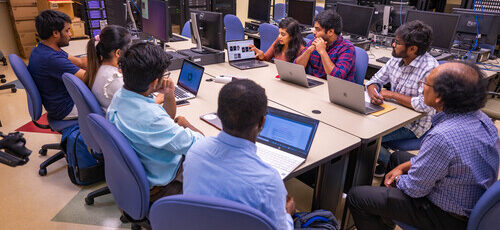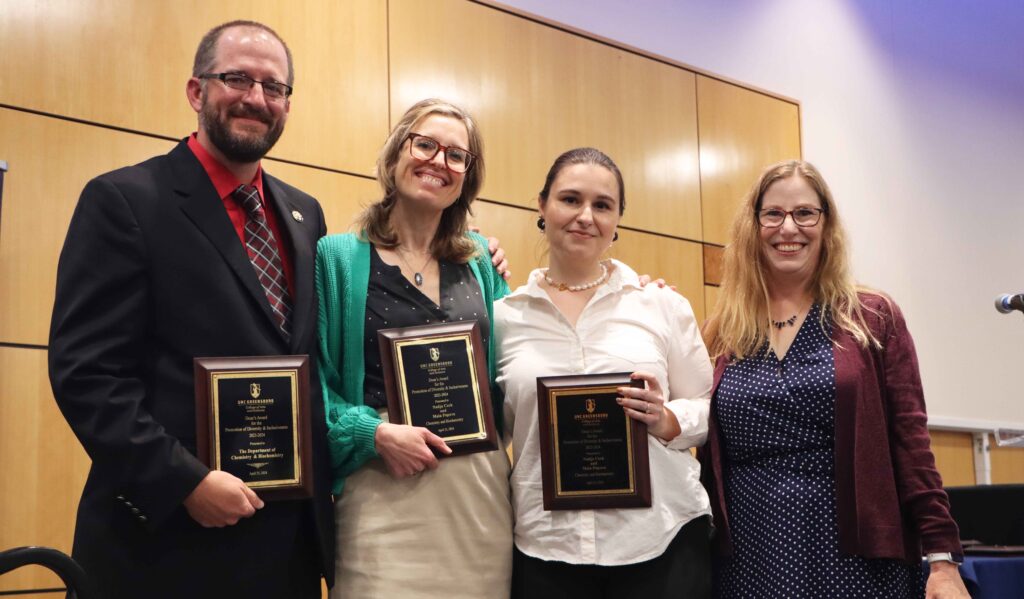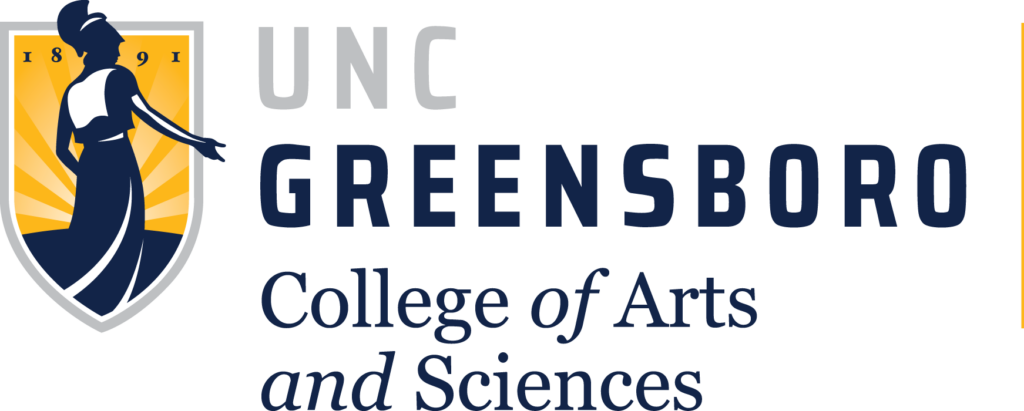Dr. Chunjiang Zhu and a team of faculty in the Computer Science department have been awarded a $372,000 grant from the National Science Foundation to create a 3-year “Research Experiences for Undergraduates” site at UNCG. The project – “Graph Learning and Network Analysis: From Foundations to Applications” – will bring undergraduates from across the country to UNCG for an 8-week summer research intensive that will provide training in graph machine learning and network analysis. The program expects to serve 10 students per year. The project will help train the next generation of network and AI workforce.
Dr. Zhu, an Assistant Professor of Computer Science, is lead PI on the project, and Assistant Professor Dr. Qianqian Tong is Co-PI. Professor Dr. Jing Deng and Assistant Professor Dr. Minjeong Kim round out the research team.
The abstract below is published on NSF’s Award search page here.
This project establishes a new Research Experiences for Undergraduates (REU) Site hosted by the Department of Computer Science at UNC Greensboro. Ten students will receive research training each summer in the foundations of graph machine learning and network analysis and their concrete applications in real-life networks. Graphs and networks have become ubiquitous in various scientific disciplines ranging from the Internet of Things, online social networks, brain networks, and molecules to protein-protein interaction networks. Analysis of large-scale networks can bring significant advances to our understanding of complex systems. Existing methods are purely empirical or lack in-depth foundational exploration, thus limited in processing complex graph and network data. This project aims to provide students the opportunity to undertake cutting-edge research in graphs and networks at a major research and minority serving institute. The research training on Graph Learning and Network Analysis will contribute to developing a competitive next-generation network and AI workforce. Through various activities such as orientation workshops, invited lectures, hands-on projects, presentations, demos, and other professional development opportunities, undergraduate students will also enhance their professional skills.
The first objective of this GraLNA project is to provide an experience of doing solid research for a diverse group of students, including underrepresented minorities in STEM, especially those from Primarily Undergraduate Institutions. Students will gain an increased proficiency in research skills as well as oral and written communication skills. The second objective is to advance the theoretical understanding of graph learning and optimization, and to also develop new approaches to handling diverse types of complexities in graph and network data. Notable types of complexities include the distributed nature of many realworld graph data, privacy concerns arising from sensitive relationships and interactions encoded in graphs and networks, and specialized network data that involves rich domain knowledge and regulatory constraints. Student participants will engage with research projects centered around distributed graph analysis, federated learning, optimization, private graph analysis, network security, and structural and functional brain network analysis. The third objective of this project is to provide for both student participants and faculty mentors professional training and growth through a series of professional development activities, and also provide junior faculty and Ph.D. students mentoring and co-advising experience respectively.






